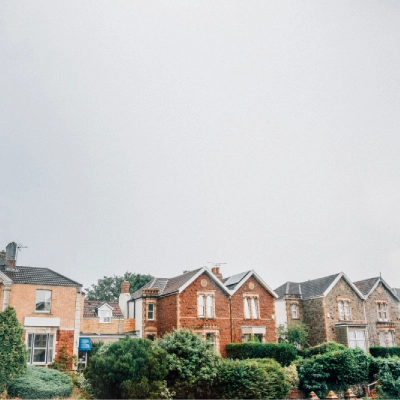Our Services

Prefer to talk?
There are many ways you can contact our team.
Call 01708 398 851
Email info@signaturelaw.com
Experienced in dealing with complicated and sensitive matters.
As seen on
Home ownership is a complex matter. Often, the legal terms thrown around can be confusing and complicate the decision-making process. When you are ready to join the property ladder, or are climbing to the next rung, you should know the difference between the forms of legal ownership: freehold and leasehold.
Our solicitors can provide you with the support you need. Call our expert team today on 01708 398851 or complete our online enquiry form.

Navigating property ownership can be complicated, especially when faced with legal jargon that makes decision-making more challenging. Whether you’re purchasing your first home or looking to extend your lease, understanding the key differences between freehold and leasehold ownership is essential.
Our experienced solicitors are here to provide the guidance and support you need. Contact our expert team today at 01708 398851 or complete our online enquiry form.
Start your leasehold enfranchisement enquiry today.
Give us a call or fill out the contact form and a member of our team will get in touch to discuss how we can help.
We’re available Monday to Friday, 9:30am to 5:30pm (excluding bank holidays).
With a leasehold property, you only own it for a set period (as set out in the lease). Leasehold enfranchisement is the process you go through to either extend your lease, or purchase a share of the freehold (collective enfranchisement).
On the other hand, if you own the freehold, you do not have to go through any such process – you own the building and the land outright. In other words, unless you decide to sell, you own the property forever.
When you buy a leasehold property, you enter a legal agreement with the landlord known as a lease. These leases tend to be long-term – lasting around 90 to 120 years, but also ranging from 40 to as high as 999 years.
Leaseholds can be bought and sold when they have years remaining. When your lease has between 85 to 90 years left, you should start thinking about a lease extension, as generally, the shorter the lease, the less it is worth. The value of short leases can drop rapidly. When the lease falls below 80 years, it will cost more to extend your lease as ‘marriage value’ is included in the formula used to calculate the premium to be paid for the lease extension.

Under the Leasehold Reform, Housing and Urban Development Act 1993, the government has been proactively giving leaseholders protection against short leases, by giving them the right to extend their lease or the right to buy the property. If you want to extend your leasehold, you should follow these steps:
Subject to meeting the qualifying criteria, you can ask the landlord to extend your lease at any time – but it can be an expensive and complicated process. It is recommended you get professionals – including solicitors and surveyors – involved before you decide to proceed.
If you’re a leaseholder, extending your lease is an investment worth making. But the law is slightly different depending on whether you have a house or flat. You might be able to extend your lease by:
You have the legal right to do this if you have held the lease on the property for two years, and it was originally a long lease of 21 years or more. You will have to check you qualify for the right to extend. If you’re considering buying a short leasehold property, you should insist the landlord extends the lease before you buy it.
To do this, make it a condition of your purchase that the seller assign the benefit of the Section 42 notice to you. This means as the new owner, you’ll have the right to request a lease extension from the landlord – without having to wait two years to extend in your own right.
Either way, you will have to pay a premium for extending the leasehold – that is why it is important to find a surveyor to do a valuation and help you decide a ‘realistic’ price to pay to extend your lease. Ideally, this is done before you commence negotiations with the landlord. How much you pay depends on a number of factors including:
When extending your lease, here are some things you should bear in mind:
Extending a lease can be complicated and expensive. Signature Law’s property solicitors can make a real difference to the process. We are specialists in leasehold enfranchisement, boasting the necessary knowledge and experience to lead you through all the legal requirements including:
When your Lease has between 80 to 90 years left to run you should think seriously about applying for a Lease Extension. Preferably the Lease should be extended before it falls below 80 years as it may be more expensive to extend once it falls below this threshold, and it may also be difficult to sell your property as lenders may be reluctant to lend to you if your lease has less than 80 years to run.
The Leasehold Reform and Urban Development Act 1993 (“the Act”) provides Tenants (Leaseholders) with the right to apply to their Landlord (Freeholders) for a new lease for a term of 90 years (plus the present unexpired term of their existing Lease) at a peppercorn rent (ie: a zero ground rent) if they meet certain conditions.
In order to qualify for a Lease Extension, you must have owned the property for at least two years and you must own a long lease of the property (ie for a term of more than 21 years).
Once you’ve verified that you are eligible to apply for a Lease Extension, a Section 42 Notice must be prepared and served on the Landlord notifying them that you intend to exercise your right to acquire a new Lease.
The Notice must offer a realistic price for the Lease Extension, and may also suggest any other amendments that you require to made to the lease (although there are limited grounds on which you can insist on changes if the Landlord does not agree.)
You should be aware that if you fail to offer a realistic price, the Notice is deemed invalid and you will be barred from serving a further Notice for 12 months.
Rather than you having to serve the landlord with a Section 42 Notice, the Landlord may be willing to grant you a Lease Extension voluntarily.
This makes the process easier and more cost effective, however, the Landlord will still require you to pay his reasonable legal and surveyor costs (see Q6 below). There are, however, some clear benefits to applying under the Act (see Q1 above) – in particular, the Act sets a strict timetable to be adhered to by all parties, and if there are any disputes over terms, an application can be made to the First-tier Tribunal (Property Chamber) for determination of those issues.
If the Lease Extension is carried out voluntarily and you have a mortgage, your mortgage company’s consent will need to be obtained and a Deed of Substituted Security may be required.
If the Lease Extension is carried out under the Act (see Q1 above), the mortgage company’s consent is not required as their charge automatically transfers to the new Title Number, however, it is prudent to keep them informed and it may be that the conditions of the mortgage need to be checked to see whether there are any particular requirements or restrictions (ie the mortgagees themselves might impose a requirement on you to seek consent before you are permitted to exercise the right to apply for a new lease).
You’ll need to pay a premium (ie: the price of the lease extension) plus the costs involved in conducting the procedure. It’s usual for the Leaseholder to pay all the Freeholders costs (legal, surveyor etc) incurred in granting the Lease Extension, as well as your own costs in this regard.
You should be aware that you will become liable for the Freeholder’s surveyor and legal costs as soon as the Section 42 Notice is served. And, at any time after the service of the Notice, the Freeholder can require the Leaseholder to pay a deposit of 10% of the premium. If the Notice is withdrawn or ceases to have effect the deposit will be returned less the Freeholder’s proper costs incurred to that date.
To help you decide a ‘realistic’ price to pay to extend your lease, you should instruct a surveyor to do a valuation, before you commence negotiations with the freeholder. It is likely that the Freeholder will wish to get their own independent valuation report and you’ll be responsible for these costs as well as for your own surveyor’s.
If you are purchasing a property that has a short lease, you should make it a condition of your purchase that the seller assign the benefit of the Section 42 Notice to you, so that you, as the new owner, have the right to request a lease extension from the freeholder, without having to wait two years (see Q2) to extend the lease, in your own right.
So, if you plan to buy in these circumstances, make sure that:
You should also be aware that as soon as the Notice is served, you will become liable for the Freeholder’s surveyor and legal costs (whether or not the Lease Extension proceeds to a completion). Further, at any time after the service of the Notice, the Freeholder can require that you, as the new incoming Leaseholder, pay a deposit of 10% of the premium. If the Notice is withdrawn or ceases to have effect the deposit will be returned less the Freeholder’s proper costs.
Once the premium and terms of the New Lease have been agreed with the Freeholder, documentation that gives effect to the Lease extension is drawn up. This is usually done by way of a Deed of Surrender and Re-grant – the existing Lease on the property is effectively surrendered and a New Lease is granted to you with a new title number.
If you cannot agree with the Freeholder on the premium/price of the Lease extension or the terms for the new lease, you can seek the disputed issues be determined by the First Tier Tribunal Property Chamber. However you should try, if at all possible, to avoid having to resort to the Court to settle this kind of issue, due to the potential costs involved.
Whilst you can attempt to extend your lease directly with the Freeholder, there are various pitfalls that you’ll need to be aware of.
Consequently it’s advisable to seek some advice from a Leasehold Enfranchisement specialist to ensure that you don’t end up incurring more costs or more importantly being refused the right to extend altogether.
The leaseholder is responsible for your reasonable costs in respect of the lease extension. Therefore, as soon as you receive a request from the leaseholder to extend the lease, you should first ask for an undertaking that your costs will be met.
Once you’ve received that undertaking, you should instruct a surveyor/valuer to give you an indication of what you should expect to receive as the premium/price for granting the lease extension. You may also wish to check with your surveyor as to whether his fees include any potential negotiations that might be required.
If a Section 42 Notice has been served on you, it is essential that you respond within two months, otherwise the Leaseholder will be entitled to a lease extension on the terms they proposed, which could include a lower premium than that which you’re entitled to receive.
If the leaseholders are interested in pursuing a Collective Enfranchisement claim to purchase the freehold, you are obliged to sell, if the claim is valid. In order for the leaseholders to qualify for a collective enfranchisement claim, the following conditions must be met:
Assuming the claim is valid and the leaseholders have served the Initial Notice on you claiming collective enfranchisement, you must serve a Counter-Notice within 2 months, otherwise you may have to agree to a purchase of the freehold on the terms that the leaseholders have required, which may include a lower premium/price than that to which you’re entitled.
On receiving the Initial Notice, you have the right of access to the property/properties for valuation purposes and the right to request information as to each leaseholder’s right to participate.
Once the Initial Notice is served, the leaseholders become responsible for your reasonable costs in agreeing to this collective enfranchisement. These costs include surveyor costs and legal costs.
In order for you as a group of leaseholders to purchase the freehold of your building you must together qualify for a Collective Enfranchisement claim, which requires the following criteria are met:
If your group of leaseholders meets the above criteria then you have a valid collective enfranchisement claim and can go ahead and serve an Initial Notice on the freeholder to that effect.
You should note however that at least 50% of qualifying leaseholders must serve the Initial Notice.
However, before the Initial Notice is served it’s important that all the participating leaseholders enter into a Participation Agreement. This agreement commits each leaseholder to proceed with the purchase once the process has been started – thus ensuring that the requirement for at least 50% of qualifying leaseholders to serve the Notice is maintained throughout proceedings. The participation agreement will cover matters such as:
Once the Initial Notice is served, the freeholder must serve a Counter-Notice within 2 months of the Initial Notice. Negotiations are then ongoing.
During negotiations, the leaseholders become responsible for the freeholder’s reasonable costs (whether or not the matter proceeds to completion). These costs include surveyor costs and legal costs. The freeholder will also have the right of access for valuation purposes and the right to request information as to each leaseholder’s right to participate.
As qualifying leaseholders it is advisable to act through a Nominee Purchaser (usually a company set up by the leaseholders for that purpose) who conducts all proceedings arising out of the Initial Notice. You should be aware that once a company is created there will be ongoing administrative requirements that will have to be dealt with.
Need help with any property related matter, call us on 01708 398851 to speak to one of our team.